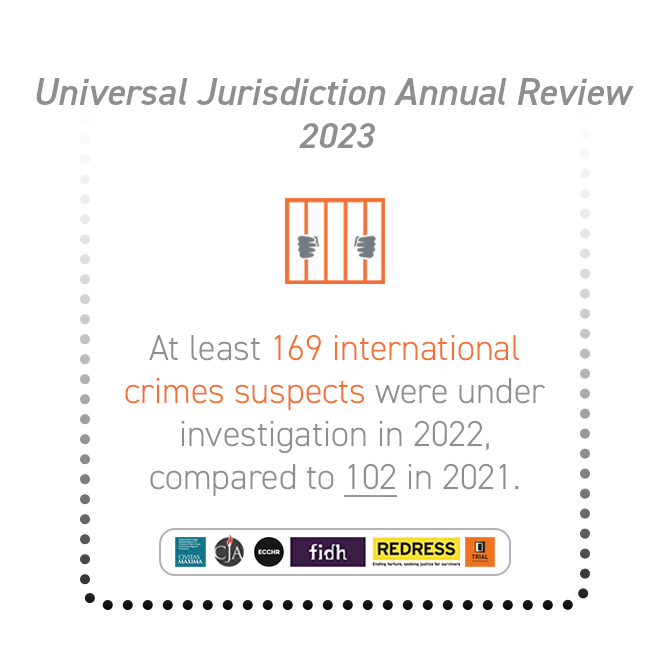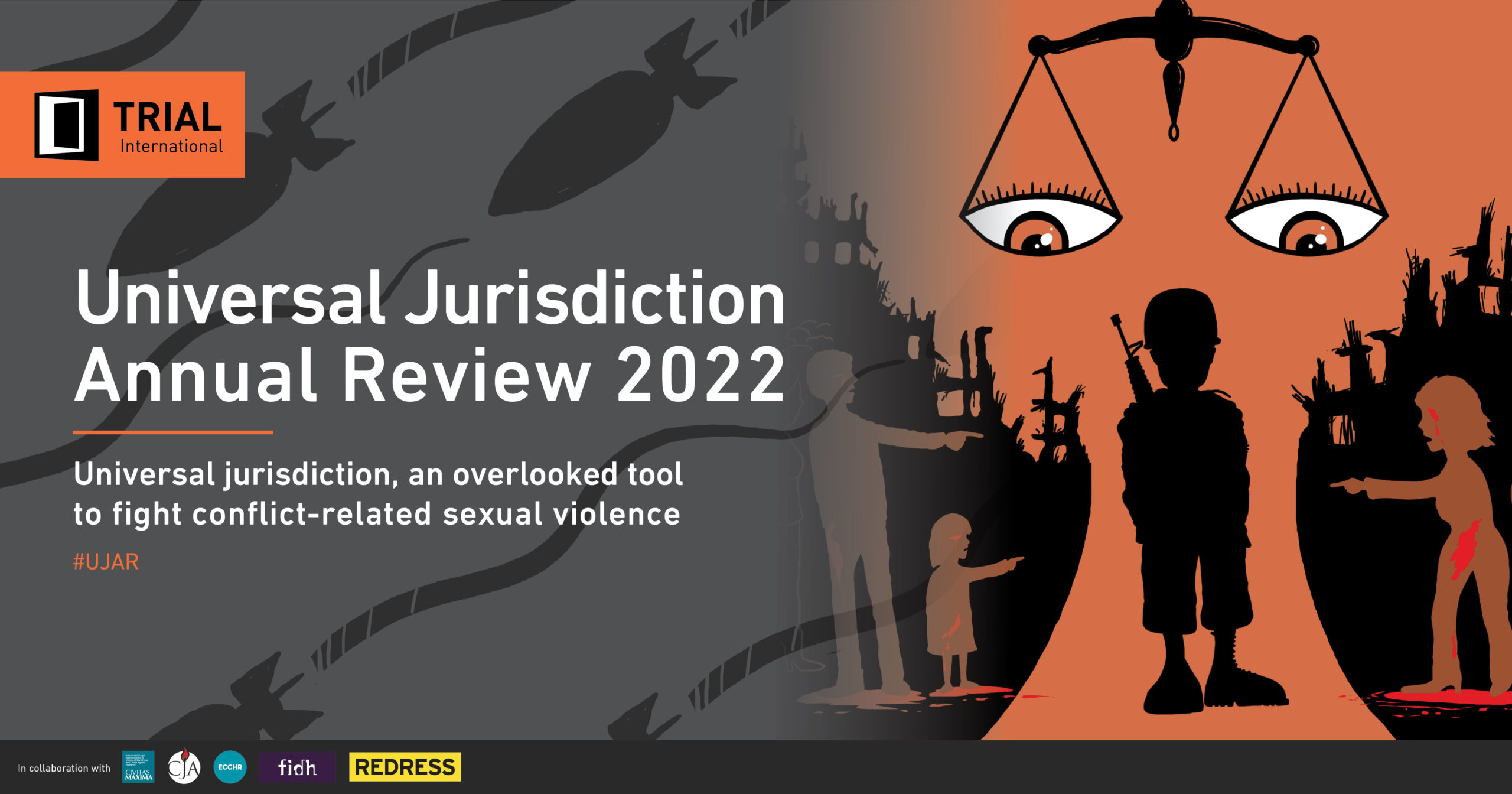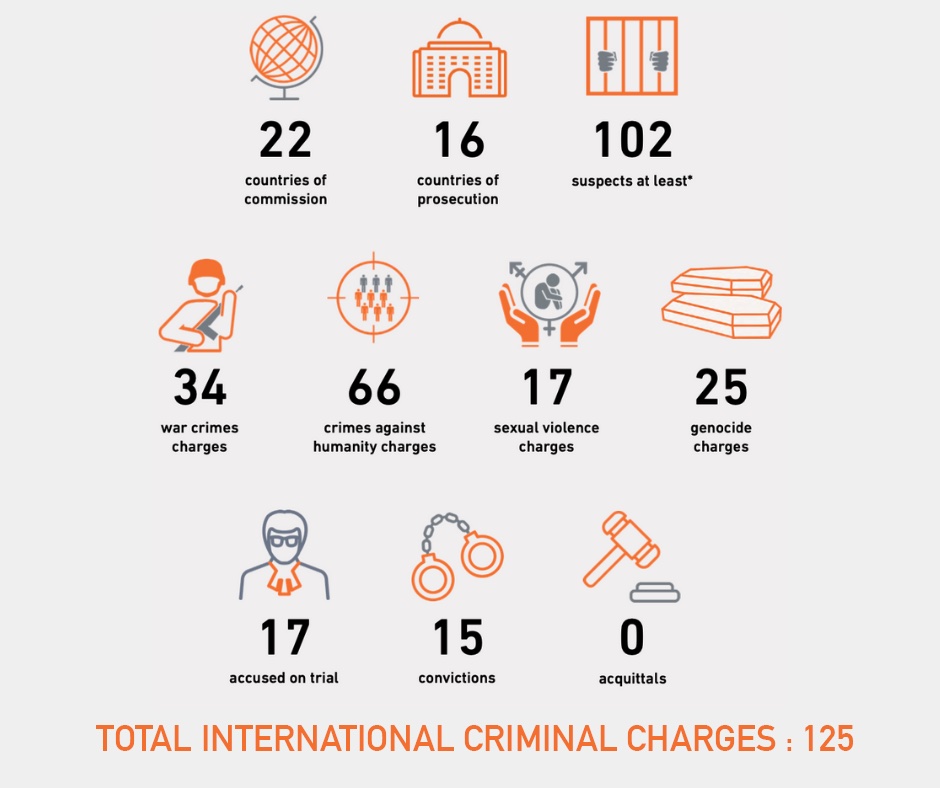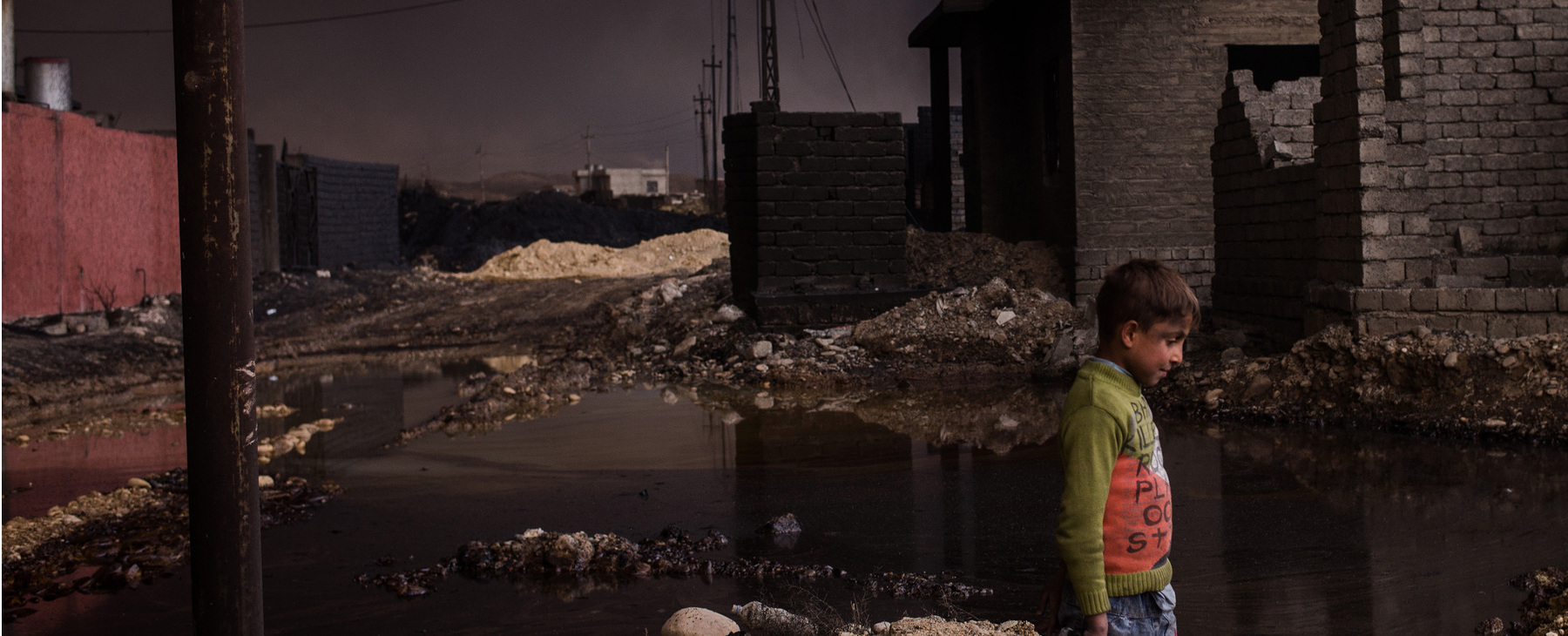Today, TRIAL International, in collaboration with Civitas Maxima, the Center for Justice and Accountability (CJA), the European Center for Constitutional and Human Rights (ECCHR), the International Federation for Human Rights (FIDH), and REDRESS, published the latest edition of the Universal Jurisdiction Annual Review (UJAR). UJAR 2025 compiles developments in 95 extraterritorial and universal jurisdiction cases prosecuted in 16 countries. The figures show that the upward trend in the use of universal jurisdiction to ensure accountability for international crimes continues, despite remaining challenges.

Universal jurisdiction as a pillar in the fight against impunity
This eleventh edition of the UJAR testifies to the enduring role of extraterritorial and universal jurisdiction as a central pillar of the global fight against impunity. Notably, 36 new cases were opened or made public in 2024, and 27 suspects were convicted in first instance or on appeal, nearly double the number in 2023. Furthermore, Portugal joined the group of jurisdictions actively prosecuting international crimes committed abroad. Legal reforms on universal jurisdiction were adopted in Germany and Denmark in 2024, that respectively strengthened and enabled the investigation and prosecution of international crimes in the two countries.
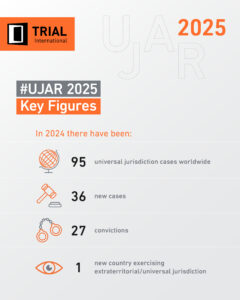

The year also witnessed several positive developments in specific cases. In France, a Court of Appeal confirmed an arrest warrant against former Syrian president Bashar al-Assad. In two other cases related to the former Syrian regime, French judicial authorities confirmed that functional immunities do not apply in international crimes cases and entered convictions in absentia. These cases reflect the continued evolution of the legal framework around immunities and demonstrate that obstacles to accountability can be eroded through legal precedents. In Switzerland, Ousman Sonko, former minister of the interior of The Gambia, was convicted of crimes against humanity and sentenced to 20 years in prison, making him the highest-ranking State official tried under the principle of universal jurisdiction before a European court to date.
Challenges to the use of universal jurisdiction remain
At the same time, the report underscores some of the challenges faced in 2024. The failure to open investigations based on extraterritorial or universal jurisdiction into alleged international crimes committed in Gaza has been perceived as a major threat to the legitimacy of international criminal justice. Even in other situations, investigative efforts have yet to yield tangible results, such as in the case of crimes committed during Russia’s full-scale invasion of Ukraine, and calls for accountability do not always translate into action, as has been the case for the documented crimes of the Belarusian regime.
Meeting the challenges
Despite these setbacks, the UJAR identifies several initiatives that States and their national prosecution authorities can implement to ensure that victims and survivors of international crimes have access to justice. An important first step is the strengthening of domestic legal frameworks to allow for and facilitate the prosecution of international crimes on the basis of universal jurisdiction. Increased training and resources for specialized international crimes units within domestic prosecution authorities are also essential.
The response to crimes committed in Syria demonstrates the importance of structural investigations and of the collaboration between civil society organizations – especially victims’ groups – and prosecuting authorities. The response to crimes committed in Ukraine following the full-scale invasion by Russia, demonstrates the potential of a coordinated, mobilized and cooperative international criminal justice. To ensure that victims and survivors have access to justice free from political bias, lessons learned from these responses can and should be applied across all regions affected by international crimes.
About the UJAR 2025
The UJAR 2025 was researched and written by UpRights. It has been produced with the financial support of the City of Geneva, the European Union, Oak Foundation, and the Taiwan Foundation for Democracy. The contents of the document are the sole responsibility of TRIAL International and can under no circumstances be regarded as reflecting the positions of the above-mentioned donors.
The photograph shown on the publication’s cover was made by Bashar Taleb on 7 October 2023 in Gaza City.
Read and download the UJAR 2025:
For this and previous editions of the UJAR, please click here.
For a more visual presentation of universal jurisdiction cases worldwide, please visit our interactive map UJIM.

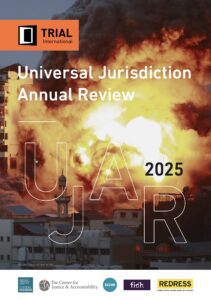
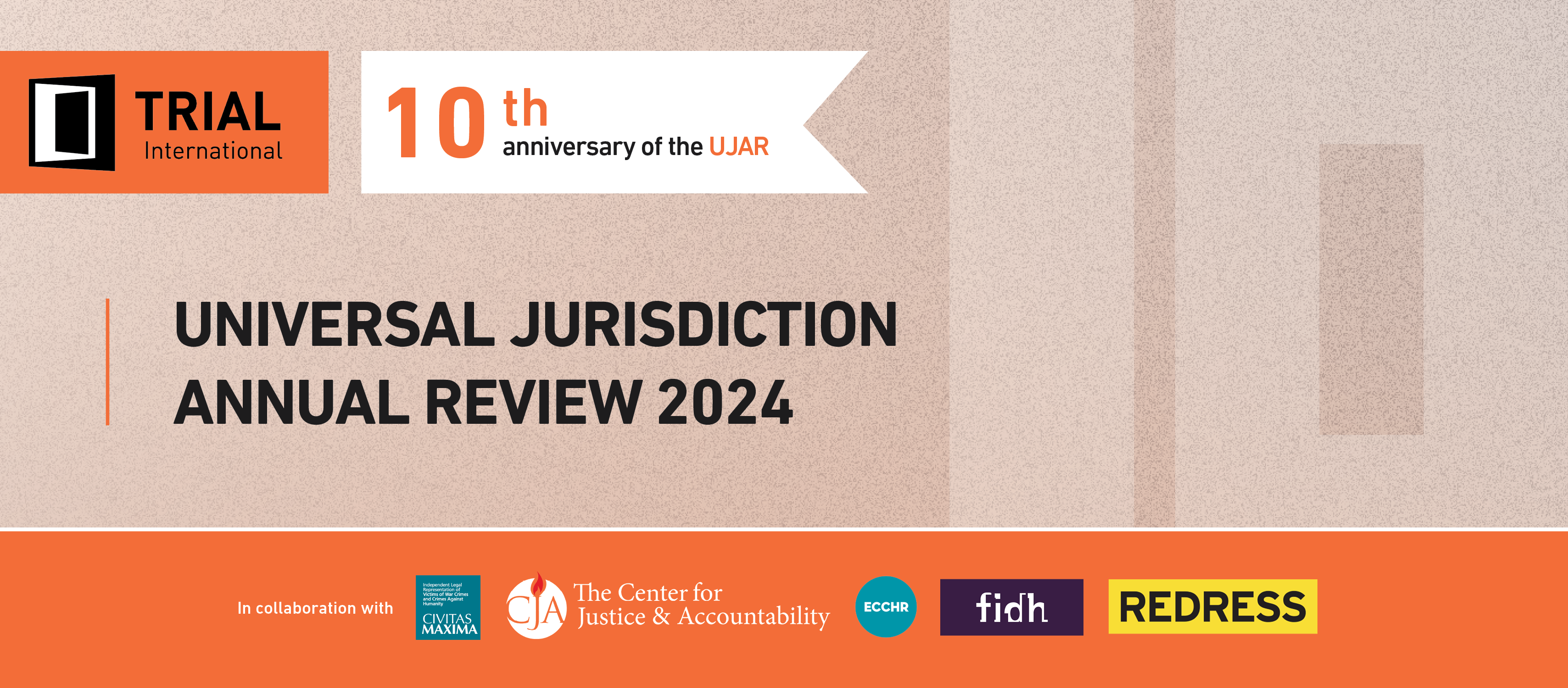
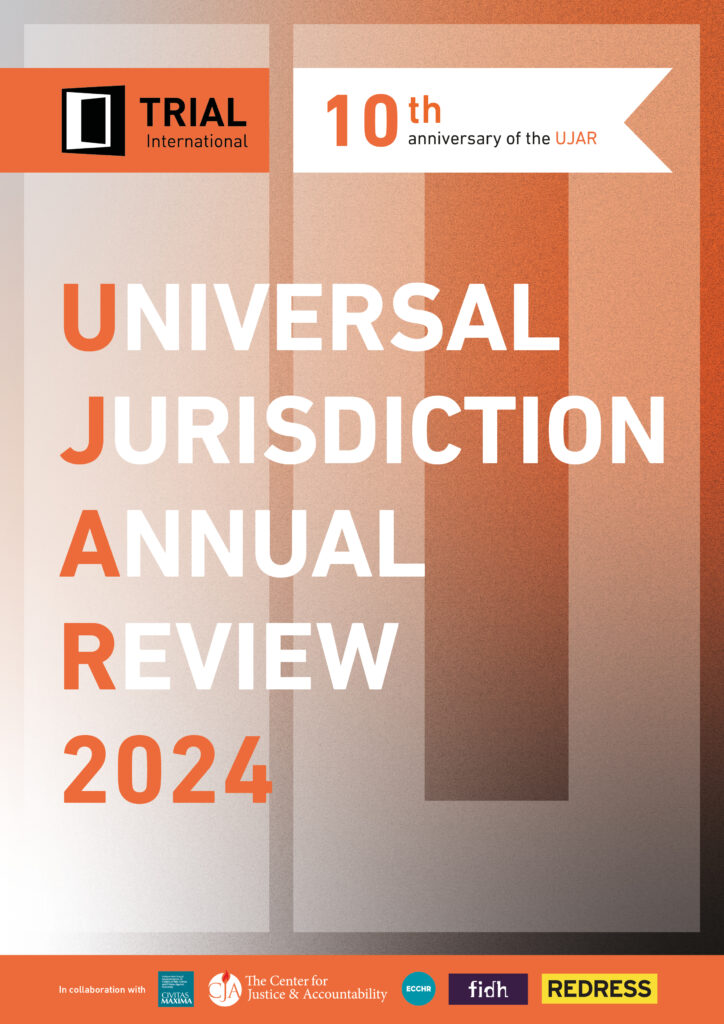
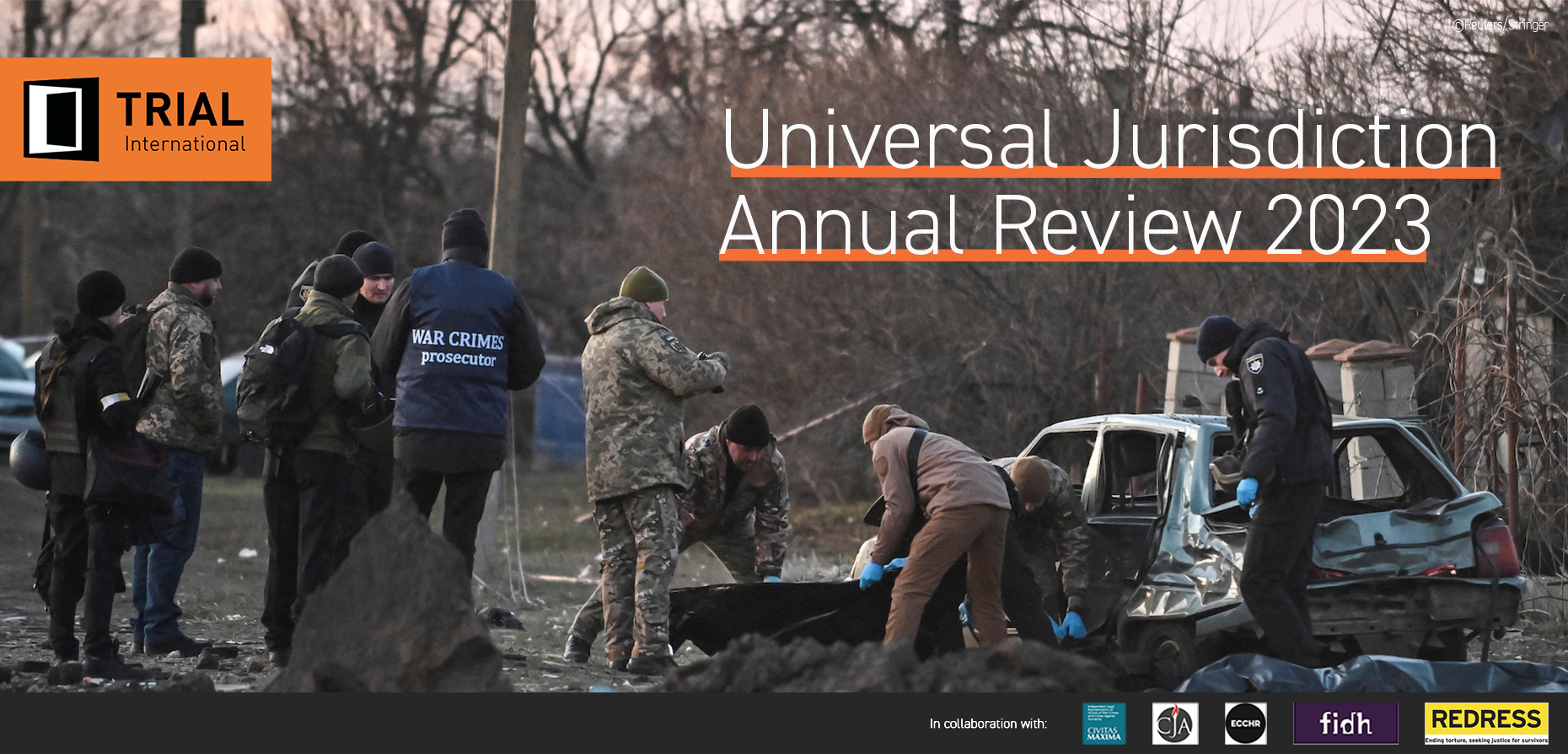 © REUTERS / Stringer
© REUTERS / Stringer

